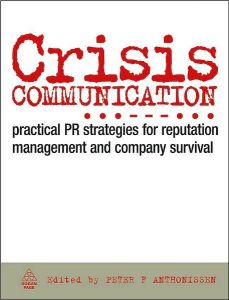Join getAbstract to access the summary!

Join getAbstract to access the summary!
Peter F. Anthonissen
Crisis Communication
Practical PR Strategies for Reputation Management and Company Survival
Kogan Page, 2008
What's inside?
Your CEO just shot his wife. Your products poison people. And your plant has blown up. What do you say?
Recommendation
The wholesome athlete you feature in your TV ads just appeared on the evening news dancing naked on a nightclub table. Your food product is suddenly making kids’ teeth fall out. Your overseas factory looks like an environmental war zone, and your flagship store seems to be burning to the ground. What do you tell the public? While others deal with the crisis itself (slamming the jock into rehab, calling hordes of dentists, greening up the pollutants and getting everybody out safely), how do you contain the public-relations impact of the disaster, and maintain the viability of your company and your brand? As a senior communications executive, you must be prepared for the most traumatic corporate crisis. Are you ready to be honest with your public and your stakeholders about whatever disaster erupts? While a crisis can take many forms, dealing with its communication aspects is more of a science than an art, and sometimes even offers an opportunity to showcase your firm in a positive way. Crisis communication demands preparation and know-how. For that, turn to editor Peter F. Anthonissen and the 19 other experts who contributed to this anthology. getAbstract recommends this savvy guide to CEOs, executives and corporate communication managers. Read it before something happens.
Summary
About the Author
Peter F. Anthonissen has advised many Fortune 100 companies on crisis communications. Nineteen other international crisis communication experts contributed articles to this book.






















Comment on this summary